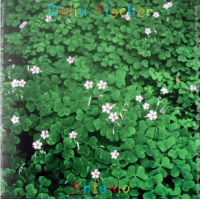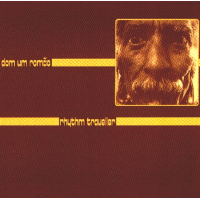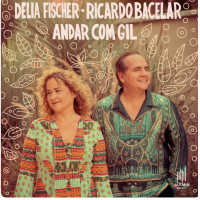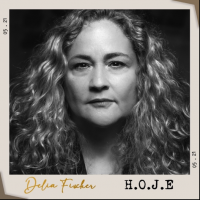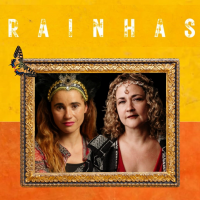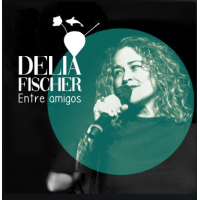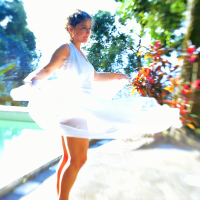Home » Jazz Musicians » Delia Fischer Discography
Antonio
Delia Fischer
Label: ECM Records
Released: 1999
Duration: 00:52:26
Views: 580
Tracks
Abertura; Øslo; Araçagy; Tarde em Laranjeiras; Velhos Tempos Lá em Casa; Ixejá; 88; Post Meridien; Maio; Choro de Pai; Arcádia; Dona Lia
Personnel
Delia Fischer
pianoAugusto Mattoso
bass, acousticHenrique Band
saxophone, baritoneCarlos Bala Gomes
drumsMarcelo Mariano
bass, electricNivaldo Ornelas
fluteLuciano Correa
celloRomero Lubambo
guitarAdditional Personnel / Information
Viola – Débora Cheyne* (tracks: 1) Violin [1st Violin] – Ricardo Amado (tracks: 1) Violin [2nd Violin] – Carlos Moreno (3) (tracks: 1)
Album Description
Welcoming a top-notch band as well as a string quartet along for the ride, she removes the rearview mirror without a scratch and keeps us attuned to what lies ahead. Fischer’s skills at the keyboard are not unlike those of Egberto Gismonti, under whose encouragement this album came to be. She moves with a kindred sense of purpose, draws from an equally broad color palette, and pays respect to heritage in her choices of rhythm and texture. But there’s also so much unique about her method that makes this a wonder to embrace with the ears as an experience of ongoing transformation. And experience really is the watchword here, as Fischer describes one fully fledged world after another. The string quartet fades us into “Abertura” by honing a metallic edge as piano and drums complete the picture with their complementary auras. Fischer’s voice joins them as an instrument in and of itself, foregoing words in favor of feeling as a seed of the greenery pictured on the album’s cover. Much of what follows falls into three categories. First are tunes that, like this opener, evoke specific weather conditions. Voices, as heard in “Ixejá” or via a field recording of children in “Tarde em Laranjeiras,” play occasional yet vital roles in reminding us of the human tapestry of which Fischer’s music represents a selfless thread. The latter track is noteworthy for the soprano saxophone of Nivaldo Ornelas, to whom it is dedicated, and who changes to tenor in “Post Meridien” in tandem with bassist Nico Assumpção. These brief spotlights on solo instruments allow different voices to be heard in a collective peace. Other instances to listen out for include the overdubbed cellos of Luciano Vaz in “Choro de Pai” and the guitar of Romero Lubambo, baritone saxophone of Henrique Band, and drums of Carlos Bala Gomes in “Dona Lia,” a grittier upward climb that never loses pace. A second form, running slightly askew with relation to these wider expanses, is the piano trio. “Øslo” finds Fischer sharing the room with bassist Augusto Mattoso and drummer Luiz Sobral. The nostalgia they create is touchable, shifting between places and times with that same easy sense of overlap that happens only in dreams. In “88,” Gomes hits the drums like a vessel to water while bassist Marcelo Mariano opens the river to whatever may come. And then there are Fischer’s piano solos. “Araçagy” is complex in the most organic way, bouncing between metaphors at the drop of a hat yet holding on to a sense of integrity at all costs. Fischer proceeds as if catching a ride on a coastal train to meet a lover somewhere along the shore. The more elegiac qualities of “Velhos Tempos Lá em Casa” hint at the underside of nature, lamenting the very earth as a source of inherited trauma and pain. Here we see an artist who understands that our histories are all connected, and that we cannot just allow them to dictate our actions without encouraging some form of sacrifice. “Maio” bears dedication to the late pianist and composer Luiz Eça, echoes of whose humanity linger on. Finally, “Arcádia” balances mourning and invitation, shifting into architected spaces where sunlight always finds purchase. An atmospheric gem very much in the Gismonti mode, and a high point of the ECM catalogue.
Album uploaded by Delia Fischer

